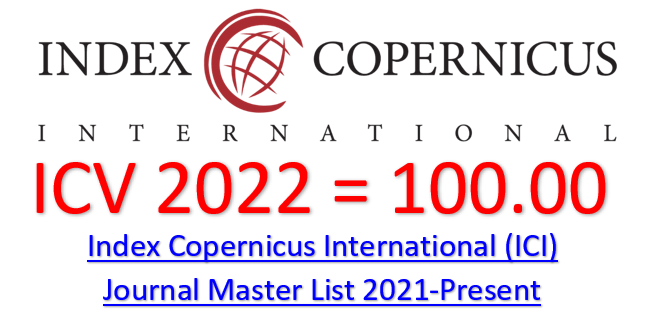Self Control And Self Management Skills (SCSMk) in Patient with Diabetes Melitus
DOI:
https://doi.org/10.55018/janh.v6i1.196Keywords:
Self Control, Self Manajemen, Diabetes MellitusAbstract
Background: A person with Diabetes Mellitus is faced with various challenges in managing their health condition in order to prevent complications that can arise as a result of their disease. The patient's internal abilities are needed to prevent psychological deterioration which ends in various complications. one of which is Self Control and Self Management Skills (SCSMk) which consists of three aspects, namely self-monitoring, self-evaluation and self-strengthening. This research aims to determine the Self Control and Self Management Skills of Diabetes Mellitus sufferers.
Methods: The design of this research is quantitative descriptive. The research sample of 60 people suffering from diabetes mellitus was obtained using a purposive sampling technique taken from a population of 200 diabetes mellitus patients in the area. The instrument in this research is a questionnaire. Data were analyzed using descriptive percentage analysis.
Results: Most respondents (73%) have Self Control and Self Management Skills (SCSMk) in the sufficient category
Conclusion: Self monitoring is the dominant aspect possessed by respondents. When individuals have good self-monitoring, they can monitor the status and context of their own behavior such as their actions, thoughts and emotions. Respondents try to carry out positive behavior in the form of following instructions in managing diabetes mellitus treatment.
Downloads
References
Anggraeni, A. F. N., Rondhianto, & Juliningrum, P. P. (2018). Pengaruh Diabetes Self-Management Education and Support ( DSME / S ) Terhadap Kualitas Hidup pada Pasien Diabetes Melitus Tipe 2 ( The Effect of Diabetes Self Management Education and Support ( DSME / S ) on Quality of Life in Patients with Type 2 Diabete. E-Jurnal Pustaka Kesehatan, 6(3), 453–460.
Fahardianto, F., & Rosyid, F. N. (2023). Pengaruh Diabetes Self Management Education (DSME) Terhadap Self Care Penderita Diabetes Melitus Tipe 2. Malahayati Nursing Journal, 5(12), 4132–4142. https://doi.org/10.33024/mnj.v5i12.10130
Juariah. (2022). HUBUNGAN SELF MANAGEMENT DENGAN KUALITAS HIDUP PADA PASIEN DIABETES MELITUS TIPE 2 DI POLIKLINK PENYAKIT DALAM Berdasarkan data International Diabetes Federation ( IDF ) prevalensi diabetes pada orang dewasa ( 20-79 tahun ) di dunia terus meningkat , tahu, 1(1), 14–25.
Kabosu, R. A. S., Adu, A. A., & Hinga, I. A. T. (2019). Faktor Risiko Kejadian Diabetes Melitus Tipe Dua di RS Bhayangkara Kota Kupang. Timorese Journal of Public Health, 1(1), 11–20. https://doi.org/10.35508/tjph.v1i1.2122
Lestari, Zulkarnain, & Sijid, S. A. (2021). Diabetes Melitus: Review Etiologi, Patofisiologi, Gejala, Penyebab, Cara Pemeriksaan, Cara Pengobatan dan Cara Pencegahan. UIN Alauddin Makassar, (November), 237–241.
Pranata, S., & Wulandari, H. (2021). A concept analysis of Self-management among diabetes mellitus. International Journal of Nursing and Health Services (IJNHS), 4(3), 356–367.
Purnama, A., & Sari, N. (2019). Aktivitas Fisik dan Hubungannya dengan Kejadian Diabetes Mellitus. Window of Health : Jurnal Kesehatan, 2(4), 368–381. https://doi.org/10.33368/woh.v0i0.213
Rachmania, D., Siswoaribowo, A., & Novitasari, P. (2022). Self-Control dan Self-Care Behaviour pada Penderita Hipertensi. SpikesNas, 01(02), 378–388.
Saleh Al-Smadi, M., & Mohammed Bani-Abduh, Y. (2017). Standardization of the Self Control and Self-management Skills Scale SCMS on the Student of University of Najran. Universal Journal of Educational Research, 5(3), 453–460. https://doi.org/10.13189/ujer.2017.050317
Santoso, A. K., & Prasetyo, A. R. (2021). Hubungan Self Monitoring Dengan Perilaku Konsumtif Pembelian Gadget Pada Siswa Sma Islam Al Azhar 14 Semarang. Jurnal EMPATI, 9(6), 482–489. https://doi.org/10.14710/empati.2020.30068
Veronica, V. P. (2021). Hubungan Self Control Gula Darah Dengan Perilaku Pengendalian Penyakit Diabetes Melitus Tipe Ii Pada Lansia. Media Husada Journal Of Nursing Science, 2(3), 115–131. https://doi.org/10.33475/mhjns.v2i3.61
Downloads
Published
How to Cite
Issue
Section
License

This work is licensed under a Creative Commons Attribution-ShareAlike 4.0 International License.

























